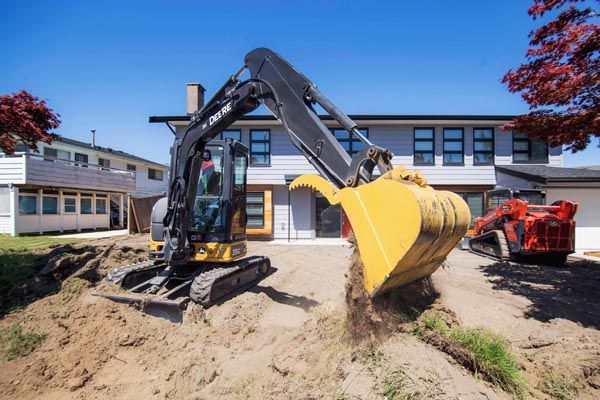Excavation plays a foundational role in residential construction, yet it’s often misunderstood or overlooked. Many assume it’s just about digging holes. Still, in reality, the work of a residential excavation contractor is far more detailed, precise, and essential to the success of a building project. These professionals manage tasks that involve safety planning, proper grading, trenching, clearing, and ensuring the integrity of future structures. Their efforts serve as the groundwork for everything that follows—from plumbing and electrical systems to landscaping and driveway placement. We will explore the role of residential excavation contractors and their contributions to the success of home construction.
Understanding the Core Functions of Residential Excavation Contractors
Site Preparation and Land Clearing
Before construction can begin, the land must be properly prepared. Excavation contractors are responsible for the essential task of clearing the site. This may include removing trees, shrubs, old concrete, or other debris that stands in the way of development. They also level the ground and make it suitable for construction, based on the project’s requirements. This stage involves identifying low or high spots in the land and adjusting them to create a level surface. If this process is skipped or performed improperly, the home may experience foundation problems in the future.
Residential excavation contractors frequently collaborate with surveyors to verify property boundaries and ensure compliance with local regulations. Their work is not only physical but also strategic, taking into account environmental considerations and long-term usability of the land. This preparatory phase ensures that the building process starts on solid ground, both literally and figuratively.
Foundation Digging and Basement Excavation
Once the site is cleared and leveled, excavation contractors begin digging for the foundation. This is the most crucial part of their job, as it directly impacts the strength and safety of the future structure. Whether the home requires a full basement, crawl space, or slab-on-grade foundation, these contractors carefully dig to the precise depth and width specified in the architectural plans. This step involves more than just moving dirt. They must also account for soil type, water drainage, and load-bearing capacity to ensure the foundation will be stable. A miscalculation at this stage can result in cracks, water seepage, or even structural failure later on.
Contractors often work closely with engineers to assess soil conditions and recommend the right foundation solution. If necessary, retaining walls or temporary shoring may be installed to prevent cave-ins. Overall, this process lays the literal groundwork for a safe, secure, and long-lasting home.
Trenching for Utilities and Drainage Systems
Excavation contractors are also responsible for digging trenches that house essential underground utilities like water lines, sewer pipes, gas lines, and electrical conduits. This work must be done with extreme precision to ensure the utilities are laid at the correct depths and angles. Misaligned or poorly executed trenching can lead to serious problems such as pipe bursts, drainage failures, or costly repairs after the home is built. In addition to installation trenches, they also manage the creation of systems for stormwater management. This may involve excavating channels or grading the land to direct water away from the property. Proper drainage reduces the risk of flooding, mold growth, and foundation erosion. In regions with strict building codes, contractors must often pass inspections at various phases of the trenching process. This step underscores the importance of excavation in ensuring a functional, livable home with long-term resilience.
Grading and Soil Compaction
After the foundation and utility trenches are completed, the ground must be carefully graded and compacted to ensure a stable foundation. Grading involves shaping the land to promote proper drainage and to prepare for features such as driveways, patios, and lawns. Without correct grading, water may pool near the foundation, increasing the risk of long-term damage. Compaction, on the other hand, strengthens the soil so that it can properly support the weight of the structure and prevent settling over time. Residential excavation contractors utilize machinery such as rollers, compactors, and graders to achieve these goals.
The process might seem simple, but it requires a trained eye to ensure that slopes are angled just right and that soil density meets the project’s standards. Grading also contributes to the property’s aesthetic, giving it a finished, even appearance that supports landscaping. This phase seamlessly blends form and function, creating a balanced environment that strikes a balance between durability and curb appeal.
Residential excavation contractors do far more than just move dirt—they lay the groundwork for safe, efficient, and high-quality home construction. From clearing land and digging foundations to installing utility trenches and ensuring proper grading, their role is deeply tied to both the structural integrity and functionality of a home. Their ability to collaborate with other professionals and adjust to site-specific challenges makes their contribution indispensable. Without their work, a construction project would lack the stability and preparation needed for long-term success. As the first ones on the scene and the last to ensure the site is ready for the next steps, excavation contractors serve as the quiet backbone of residential construction. Their work may go largely unseen once a house stands tall, but it remains the foundation—literally and figuratively—on which everything else rests.







